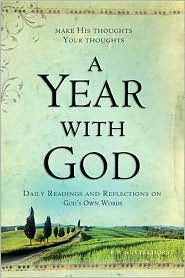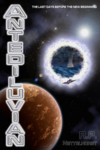One of the interesting things that puzzles me sometimes is how people go about reading the Bible. In Douglas Adams’ humorous novel, The Hitchhiker’s Guide to the Galaxy, scientists build the computer Deep Thought and ask it “the great Question of Life, the Universe, and Everything.” After contemplating for seven and a half million years, the computer responds, “I don’t think you’re going to like the answer.” After the scientists insist the computer say it anyway, it tells them that the answer is forty-two. Then it adds—since they aren’t happy with the answer—“I think the problem, to be quite honest with you, is that you’ve never actually known what the question is.” Most people are asking questions about the Bible that God was not trying to answer; then they wonder why they are disatisfied, or worse.
People ask science questions and history questions and insist that it be "historical accurate" or that there be "verifiable" information in it. And I think that misses the point of the Bible. Paul, in discussing the OT, pointed out that the things in it were there for our benefit, our edification; not to prove to unbelievers that the Bible is "accurate" whatever the heck that might mean. He also referred to the things in the OT as a "shadow."
When Jesus tells people that they should be willing to cut off body parts in their efforts to avoid sin, we rightly understand him to be making use of hyperbole, a literary technique. Only the psychotic would imagine he was speaking "literally." And then when he in the very next breath talks about "eternal fire" of Hell, we want to assume that's "literal?" Frankly, I suspect not. I'd opt for hyperbole there, too.
I really think most people, when they read the Bible, have taken leave of everything they know about reading. Why do we insist on "literalism" and "historical reality" for everything in the text? Why is it so hard to accept the possibility that, for instance, the book of Job is simply a drama, you know, like something written by Shakespear, designed to teach us something? I mean, really. Does anyone seriously think that the various characters in that book ACTUALLY spoke in poetry, and that the text is intended to be understood as a transcript? A deposition? Is there any part of the Bible that is to be understood that way? Really?
I think a lot of people are like the scientists facing Deep Thought. They have no idea what the question really is.
Saturday, July 09, 2005
Subscribe to:
Post Comments (Atom)






No comments:
Post a Comment